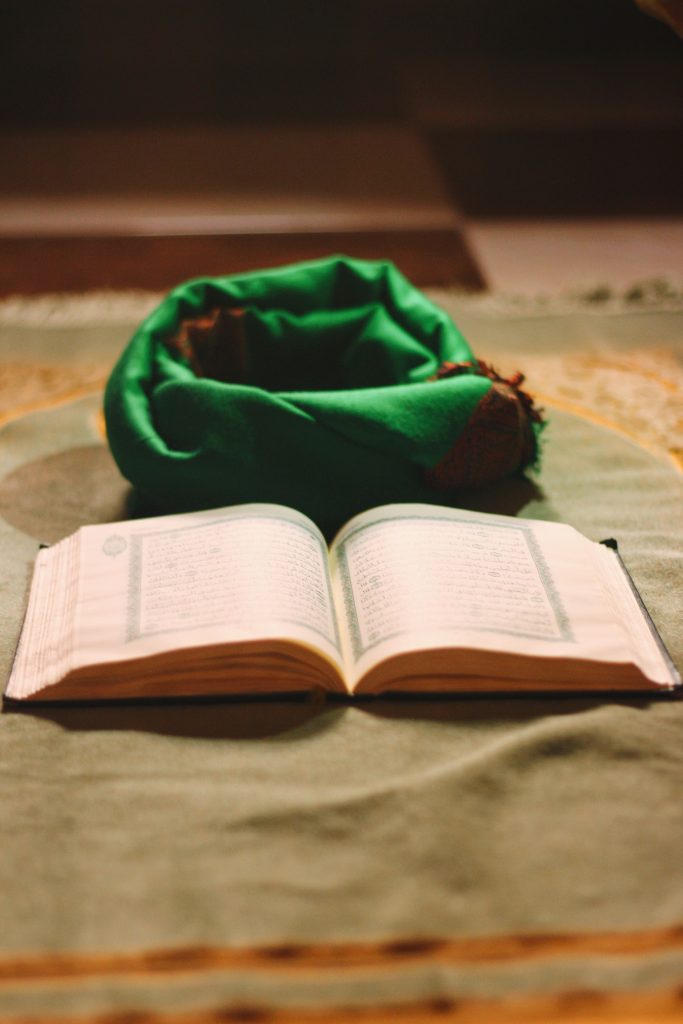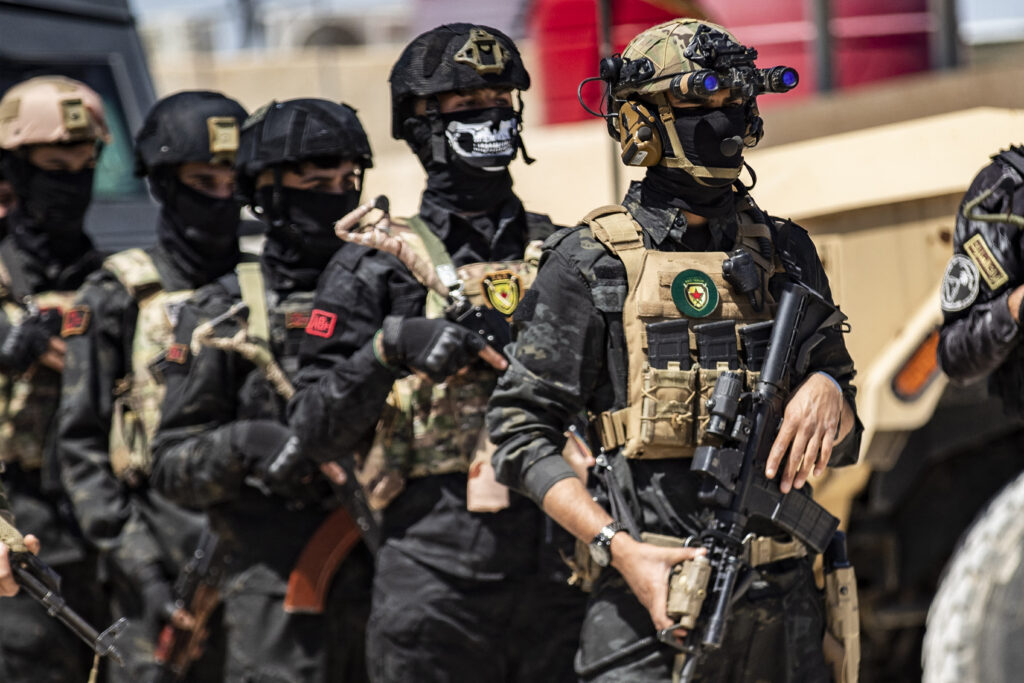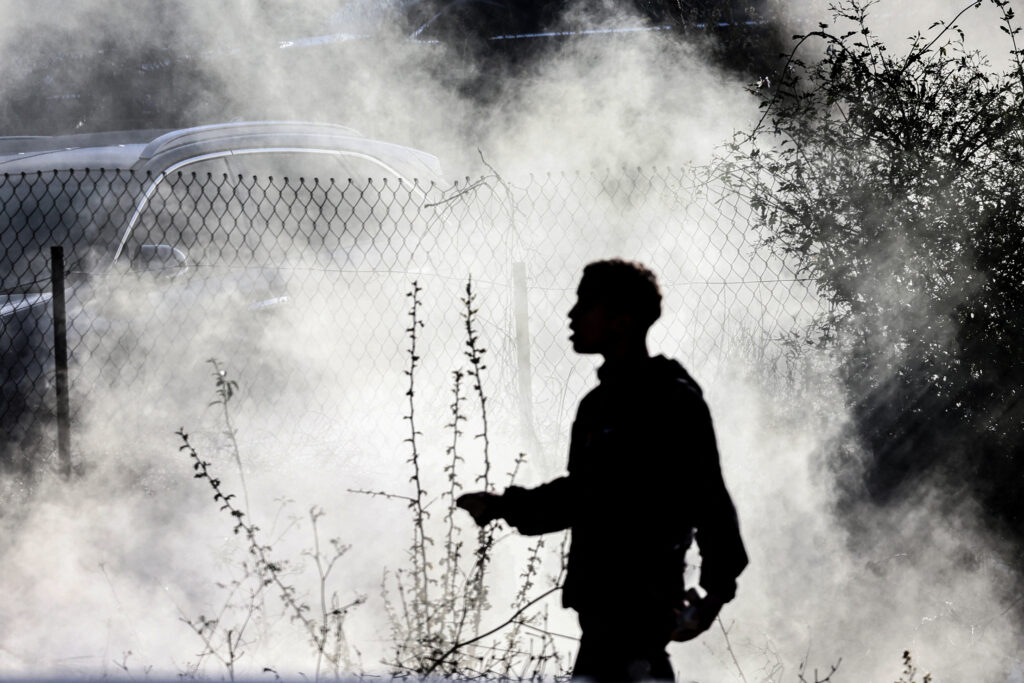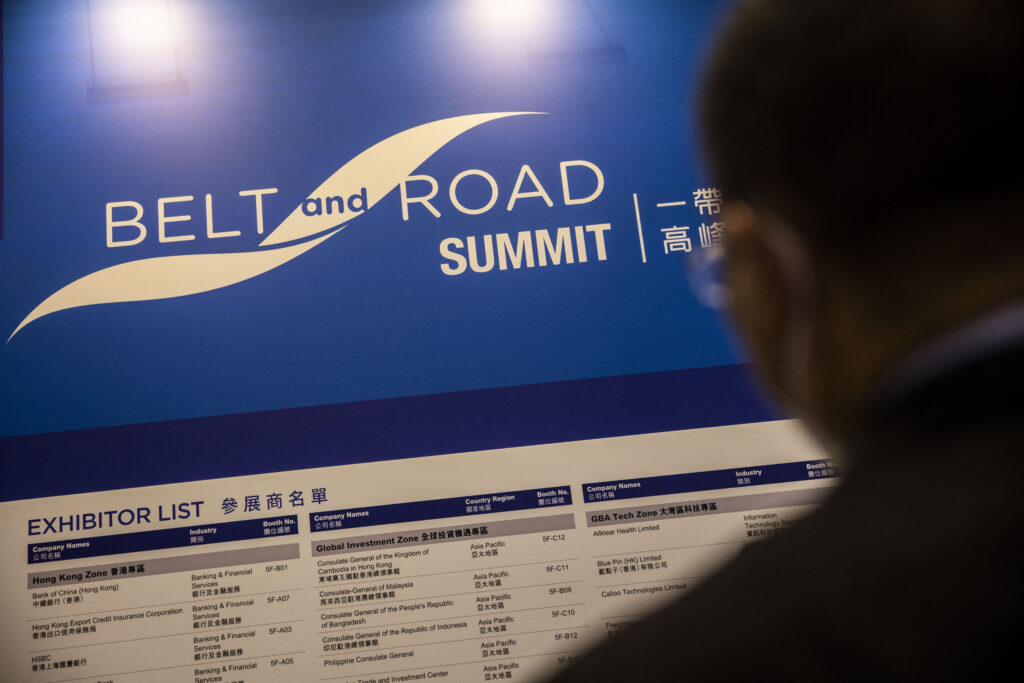By Salma El Idrissi
In 2015, Kuwaiti MP Nabil Al-Fadhl provoked a huge controversy in the National Assembly. Al-Fadhl, known for his opposition to Shari’a, called openly for legalizing the sale of alcohol in Kuwait. He maintained that alcohol consumption is part of the history and the culture of the people of Kuwait and hence, should not be banned. Islamist members of Parliament accused Al Fadhl of insulting the honor of Kuwaitis’ and of undermining the image of the Kuwaiti history and society’ (Moftah 2015).[1] Al-Fadhl might not be the only nonconformist politician in Kuwait, but his remarks provoked an unusual discourse in response that clearly detaches Islam from the history and the culture of the Kuwaiti society.
In this paper, I summarize some central features of discourse on Shari’a in the Arab Gulf. I will focus on the meanings of Shari’a and the challenges that affect its enforcement in Kuwait, Qatar and Saudi Arabia. These countries represent the existing array of interpretations of Shari’a, as a legal and moral system in the Gulf region.
Kuwait: Preparing society to accept Shari’a
In an interview with the Emirati newspaper Al-Etihad, Dr. Khaled Madkour, the President of the Consultative Committee on the Implementation of the Provisions of Muslim Sharfi’a Law in Kuwait, said that Muslims are not yet prepared to apply Shari’a and each country has its own circumstances.'[2] He echoed the concern of several Muslim scholars about enforcing Islamic Shari’a while taking into consideration the contemporary contexts and social idiosyncrasies. In Kuwait, the existence of non-Islamic legal references and shifting social and culture patterns render that task even more complicated.
The need to preserve Islamic identity in the country without disengaging it from global development led to the creation of the Consultative Committee on the Implementation of the Provisions of Muslim Shari’a Law. The committee was established in 1991, at the behest of Sheikh Jaber Ahmad Al-Jaber Al-Sabah, the late Emir of Kuwait, to take over putting down a plan for the preparation of circumstances to complete the application of the law of Islam, while considering the actual situation of the country and its interests’ (Article 2, 1991).
After more than twenty years of preparation,’ the committee could offer only ten recommendations for the legislative authorities. Al-Madkour explains that instability of the national assembly, bureaucracy and conflict of interests precluded the incorporation of Shari’a law in the Kuwaiti legal system. In addition, Kuwaitis tend to be very divisive in regard to the meanings of Shari’a. In this respect, Al-Madkour defines the main attitudes toward Shari’a in Kuwait as follows:
- Indifference: This category does not necessarily agree or disagree with enforcing Shari’a but believes that Shari’a is an idea that will never see light in Kuwaiti society. Indifferent’ Kuwaitis think that global challenges and international pressure go counter to the adoption of Shari’a. For instance, Al-Madkour mentions that some Kuwaitis ironically label the Shari’a as the Charity Committee’.
- Idealization: Idealists see in Shari’a the salvation’ for Kuwaiti society and the ultimate solution for all social and political issues. For idealists, Muslims are the least developed community in the world because they neglected Islam and supplanted Shari’a with man-made law.
- Opposition: The anti-Shari’a category in Kuwait think that Shari’a law is outdated and non-compliant with the universal principles of human rights and individual freedoms. This category warns against turning Kuwait into another Sudan,'[3] if Shari’a law is enforced.
The polarity of these perceptions presents a significant challenge for the Shari’a Committee in Kuwait. In fact, reaching a consensus on the meanings of Islamic Shari’a’ in Kuwait is more challenging than incorporating Islamic principles in the legal system, which has already been established.
Qatar: Toward an ethical definition of Shari’a
The discourse on Islamic Shari’a has been highly influenced by local, regional and global crises. In 2012, the Qatar Foundation inaugurated the Research Center for Islamic Legislation and Ethics (CILE) as a part of its goal of developing a modern understanding of Islamic ethics, and implementing its principles in education and social development. On the global level, the center was initiated as a response to the mounting extremism and misrepresentation of Shari’a by radical groups. Innovative research in CILE revives the legal concept of Al-Maqasid (the purposes or intents) and deploys its meanings in practical life.
The modern concept of Al-Maqasid was developed by the renowned Tunisian scholar Mohammed Al Tahir Ibn Ashur, to provide a modern interpretation of Shari’a. In his Treatise on Maqasid Al Shari’a, Ibn Ashur summarizes the importance of understanding the intents of Shari’a in developing a healing legislation for their [Muslims] contingent issues when new cases emerge, and providing them with a decisive opinion in face of conflicting arguments by different juristic schools’ (Ibn Ashur 2013).[4] According to Ibn Ashur, there are five Maqasid of Islamic Shari’a. These are: preserving faith, life, lineage, intellect and property.
How can we explain the emergence of a relatively progressive Islamic discourse in Qatar, one of the smallest Muslim countries in the world? Economic growth and the increasing diversity in Qatari society have created new challenges to the Islamic identity and the rule of law in Qatar. The Research line of CILE and the educational strategy of Qatar foundation represent Qatar’s efforts in reconciling Shari’a with universal values and providing an Islamic perspective on controversial global issues, ranging from climate change to human rights, in Qatar’s particularly globalized educational and media context.
Saudi Arabia: Finding a place for human rights in Shari’a
In May 2015, (We ask Bin Salman to revoke the committee) was the most widely trending hashtag in Arabic, according to BBC Arabic.[5] This hashtag does not only convey the dissatisfaction of social media activists with the repetitive abuses’ of the Committee for the Promotion of Virtue and the Prevention of Vice (CPVPV), but also reflects the contemporary discourse on Shari’a in the country. The CPVPV, commonly known as Al-Hay’aa (the committee), is the equivalent of a moral police force in Saudi Arabia. Since its formal establishment in 1981, committee members patrol Saudi streets to ensure that Shari’a law’ is respected and implemented. This includes, but is not limited to, enforcing dress codes, preventing ikhtilat (intermingling of the sexes), closing stores at the time of prayers and fighting superstition and sorcery. In August 2015, King Salman issued a decree that withdrew the committee’s power to arrest those suspected of violating these laws.[6] This decision came after numerous complaints against members of the committee and documented incidents of human rights abuse.
The moral authority of the committee and its alleged abuses has significantly shaped common perceptions of Islamic Shari’a inside and outside the country. In Saudi Arabia, the discussion of the rule of law focuses mainly on individual conduct as opposed to other facets of Shari’a law. Public opinion in Saudi Arabia tends to be very polarized on individual morality but highly homogenous in its interpretation of Shari’a law. The most conservative segment of Saudi society lauds the kingdom’s efforts in preserving what they believe to be the legacy of the Prophet and the pious Salaf. This category believes in a literal interpretation of sacred texts and will not negotiate rolling back the implementation of Huddud under any circumstances.
On the other hand, their liberal’ counterparts, for lack of a better word, call for a more progressive reading of the Holy Quran and the Hadith and denounce clerical suppression of human rights in the name of Islam. The issues of women’s rights, freedom of expression and freedom of religion are the main points of divergence between opposing sides. All of these topics oscillate between polarized understandings of Shari’a: liberating individuals vs. purifying society from vice. Nevertheless, both perspectives equate Shari’a with a legal control of morality and public behavior.
How does the Shari’a discourse differ from other Muslim countries? The answer probably lies in the difference between the legal environment in Saudi Arabia where Shari`a is institutionalized in the state and the majority of Muslim countries where Shari’a is more of an idea or framework. In the latter, Saudi Arabia is usually cited as a living example of Islamic Shari’a, by both proponents and opponents of theocracy. In Saudi Arabia, however, more voices are questioning the same legal provisions that other Muslim countries now seek to apply. These provisions are mostly related to the Islamic dress and penal code.
The discourse on Shari’a in the Gulf: Multiple perspectives
The discourse on Shari’a in the Gulf reflects the struggle of Muslim societies with reconciling Islam with secular law. Saudi Arabia, a country that adopts a literal reading of Quranic legislation, is no exception. In Saudi Arabia, more and more voices are calling for revision of the penal and family code, particularly Huddud and women’s rights. The alleged human rights abuse of the CPVPV divided Saudi public opinion on the existence of morality enforcement in Shari’a. On the other hand, Shari’a is still an idea in Kuwait and Qatar. In Kuwait, Islamic authorities insist that Shari’a can only be applied when society is ready to embrace it. Qatar seeks to develop a contemporary understanding of the Shari’a law through the revival of Maqasid about the intents of the Shari’a. In all of these countries, there is no clear consensus on the true meanings of Shari’a. This being said, there is an agreement on why Shari’a cannot be, at least currently, fully implemented. This agreement stems from the fear of replicating the model of countries that adopted Shari’a at the expense of economic development and human rights. A broader possible conclusion that one might draw is that Gulf state discourse around Shari’a is diverse, vibrant and dynamic, contrary to some stereotypes in the West about Islamic legal ideology as backwards-looking.
Salma El Idrissi holds a Master’s degree in Public Policy and Administration from the University of Massachusetts, Amherst. She is currently pursuing her PhD in Communication at Cornell University. Her research focuses on political propaganda, and the role of Social Media in shaping political and social values in the Middle East.
[1] Moftah, Lora. “Kuwait Lawmaker Under Fire For Alcohol Legalization Remarks: MP Proposes Overturning Drinking Ban At Concerts.” International Business Times. 2015. Accessed September 13, 2016. http://www.ibtimes.com/kuwait-lawmaker-under-fire-alcohol-legalization-remarks-mp-proposes-overturning-1773252.
[2] Abdullah, Hassan. “[Dr. Khaled Al-Madhkur: Muslims are not apt to apply Shari’a and each state has its own circumstances] Al-Itihad. Accessed September 13, 2016. http://www.alittihad.ae/investigations_details.php?id=32.
[3] Abdullah, Hassan.
[Dr. Khaled Al-madhkur: Muslims are not apt to apply Shari’a and each state has its own circumstances] Al-Itihad. Accessed September 13, 2016. http://www.alittihad.ae/investigations_details.php?id=32.
[4] Ibn Ashur, Muhammad al-Tahir. Ibn Ashur Treatise on Maq Al-Shari’a. Translated by: Mohamed El-tahir El-Mesawi. Herndon: The International Institute of Islamic Thoughts, 2013.
[5] [Saudi requests to cancel the committee’ and Jordanian celebrations of independence day]. BBC Arabic. May 25, 2015. Accessed September 13, 2016. http://www.bbc.com/arabic/blogs/2015/05/150525_social_media_may_25.
[6] “Saudi cabinet decree prevents ‘religious police’ from pursuit, arrest”. 13 April 2016. http://english.alarabiya.net/en/perspective/features/2016/04/13/Saudi-cabinet-decree-preventing-Religious-Police-from-pursual-and-arrest.html.





